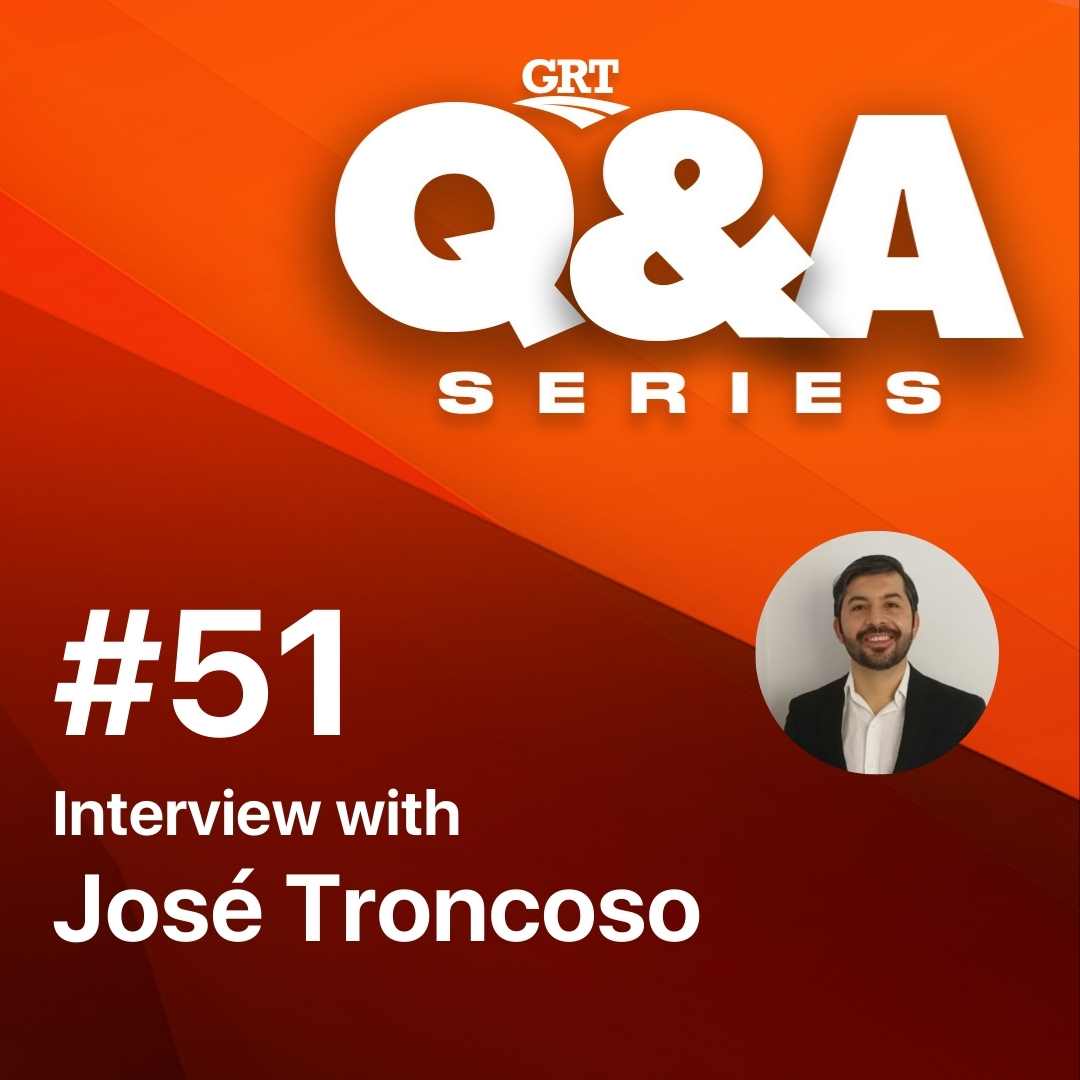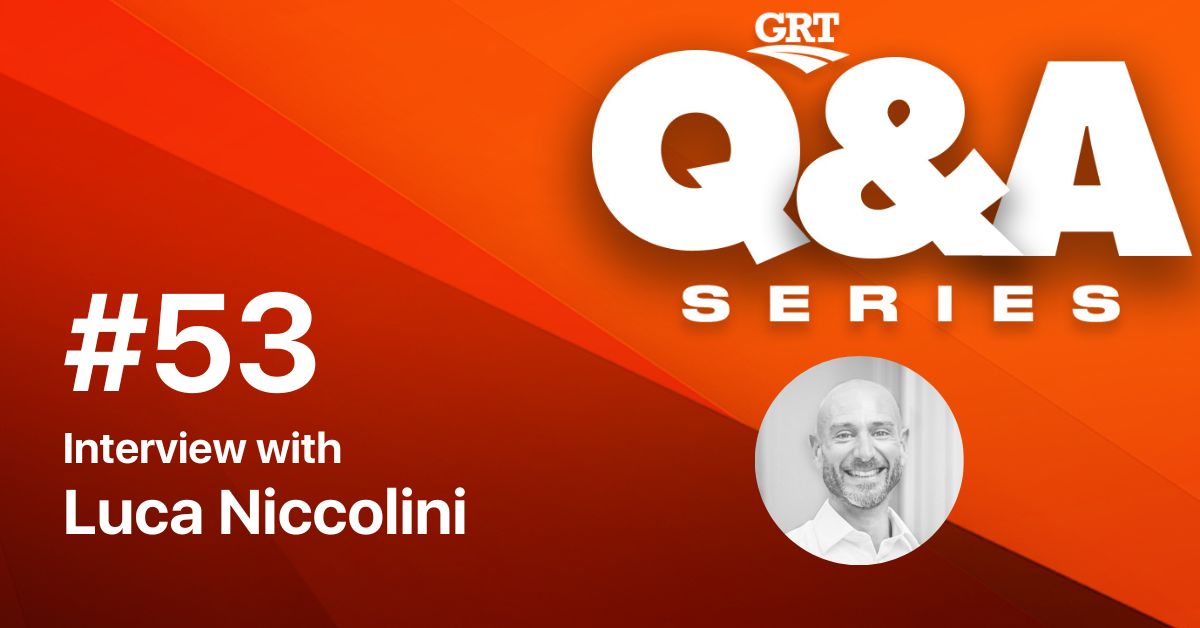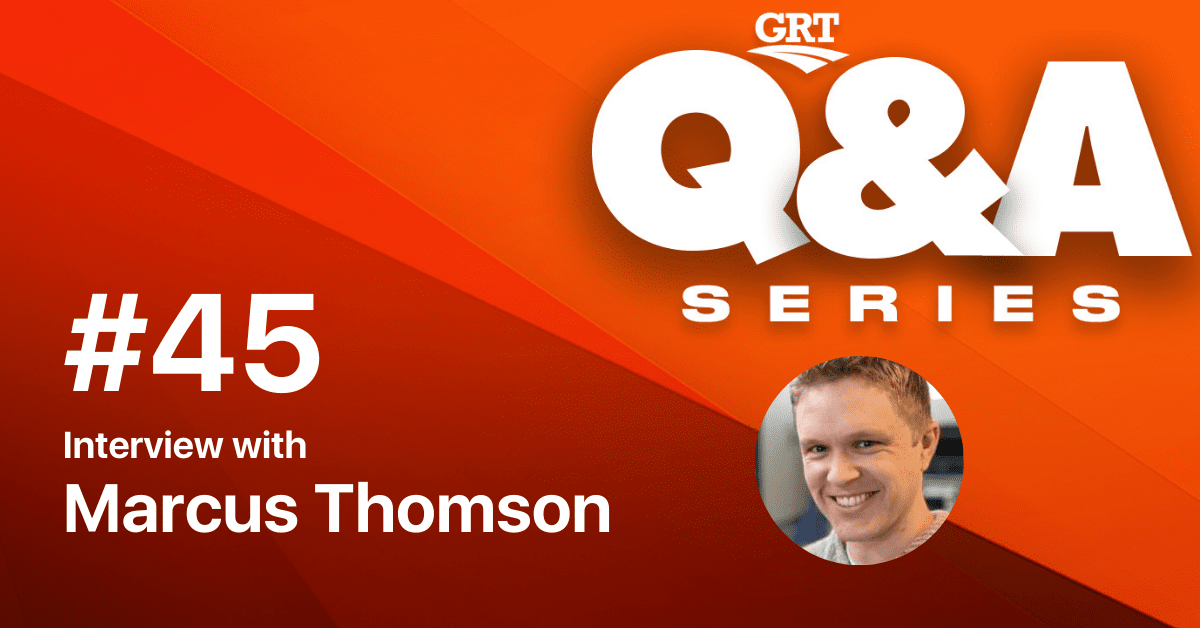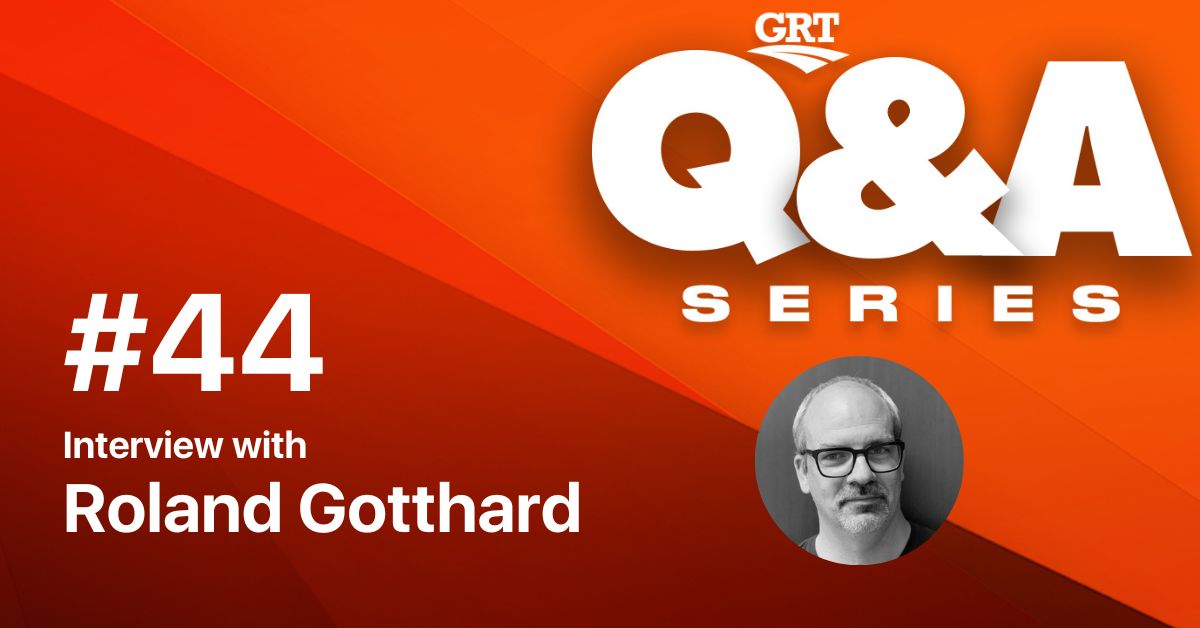GRT Q&A Series #51 : Interview with José Troncoso

About the guest
José Luis has 15 years of experience in the industry and particularly in mine planning, operations and consulting focused on automation, productivity and deployment of mining technologies. He has led studies on the implementation of mining technologies in Chile and Australia, capturing knowledge and experience in diverse operational conditions and technologies applied to mining with focus on safety, productivity & automation (autonomous trucks/drills). He has operational experience in the implementation of technological transformations in large-scale mining operations, leading the implementation, change management and technology adoption by mining organisations.
Tellus Mining are an Australian company specializing in the selection and implementation of technologies in the mining industry. Their main activity is to advise and accompany the client on automation issues, technological implementation projects, operations optimization and resource management.
They specialize in the area of automation and implementation projects of these technologies. Their professionals have extensive experience in automation projects in open pit mining and have participated in the planning, negotiation with suppliers, acquisition and commissioning of the main autonomous truck projects in Chile and Australia.
Tellus Mining has managed and operated autonomous truck and drill systems at various large-scale mining operations since 2008. Their services include:
- Technological implementation strategy
- Productivity initiatives
- Security initiatives
- Development of customized mining applications
- Training and development of human talent
In this GRT Q&A Series, we speak about autonomous mining solutions with José Luis Troncoso. He is the Technical Manager – Mine Automation & Innovation at Tellus Mining. He is based in Vancouver, British Columbia.
Q1) A warm welcome to the GRT Q&A Series José. It’s an honour and pleasure to have you. Please tell us more about you and your role as Technical Manager – Mine Automation & Innovation at Tellus Mining?
Thanks for the invitation, it is my pleasure.
At Tellus Mining, we pride ourselves on being mining and production engineering specialists focused on improving productivity, cost, and safety. We aim to achieve a more productive operating culture through working with Company’s people, processes, and equipment.
As a Technical Manager, I have been involved in the development of engineering studies for the implementation of autonomous trucks in Chile, Australia, and Canada, capturing knowledge and experience in various operational conditions and different types of technologies, among which stand out fleet management systems, remote control of dozers, fatigue management, etc. In addition, I have led projects of commissioning technologies in large mining operations, leading the implementation, change management, and adoption of new technologies by the mining operation.
Q2) Kindly take us through Tellus Mining’s strategy and roadmap for autonomous mining solutions? What have been your key projects? What technologies have been deployed in your key projects and in which parts of the world?
We are a company that specialized in the selection and implementation of technologies in the mining industry. Our main activity is to advise and accompany clients in automation, technology implementation projects, optimization, and resource management.
We specialize in automation and implementation projects for these technologies. Our professionals have extensive experience in open pit mining automation projects and have participated in the planning, negotiation with suppliers, acquisition, and commissioning of major autonomous truck projects in Chile, Australia, and Canada. We have managed and operated autonomous truck and drilling systems in various large-scale mining operations since 2008. Our personnel has worked with the most important autonomous truck systems available on the market today: Komatsu and Caterpillar, which has allowed us to establish a direct relationship with suppliers and access up-to-date information validated by the manufacturers themselves.
Our team has first-hand experience in the selection, implementation, and management of safety technologies through different operations and commodities. We understand the benefits and limitations of the products offered in the marketplace and have the experience to recognize the challenges that people and processes face to successfully implement these technologies.
Q3) How does Tellus Mining assist mining companies to understand and prepare for the people, process and technology changes? What goes into realizing the full potential of the different autonomous technologies and finding unified and practical solutions?
Tellus Mining team specializes in providing strategic advisory and implementation services for surface mining automation and other technologies aiming to improve safety and productivity. Our direct operational experience in executing large-scale autonomous haulage (AHS) and drilling (ADS) projects, enables us to assist mining companies to understand and prepare for the people, process, and technology changes required to achieve the desired future state.
We also have participated in the strategic planning for the implementation of technologies to ensure the realization of the potential value proposed for each technology and help to integrate them towards a unified and practical solution.
During our years of combined experience of professionals implementing technology solutions in mining, we have developed a methodology with structured work packages for each stage of the value chain of a technology project, with clear milestones, deliverables, and outputs for the success of the next stage. Some of the deliverables are related to technology selection, technology deployment plan, operational strategy design, operational readiness, and operational support.
Q4) Autonomous operating zones (AOZs) require effective dust suppression to prevent start/stop events of autonomous haulage trucks (AHTs). How important is haul road design and maintenance in delivering the benefits of AHTs? What are some of the knock-on effects of bad haul roads?
Autonomous technologies require better operational conditions, within which a very important one is the quality of the roads to allow the technology to function optimally. Inadequate road maintenance can generate undesirable impacts of trucks stopping or slowing down, fleet stoppages, or even some undesirable safety event.
Q5) How will original equipment manufacturers (OEM) interoperability drive progress in autonomous mining applications and technologies? Are there limitations that need to be overcome?
Currently, the main OEMs are developing and maturing their technology to be interoperable, increasing their flexibility and the size of the equipment to be managed in a mining operation. One of the great limitations of current technology has to do with the ability of these systems to work with multi-brand equipment and the various models of equipment that exist in terms of extraction trucks, loading equipment, drilling, and auxiliary equipment. In addition, how the autonomous technology is capable of being integrated into an existing technological ecosystem that already contains a high level of expertise on the part of the client and is not easy to transform, among which we can mention: fleet management systems and complementary technologies such as collision alert, fatigue management, etc.
Q6) How crucial is the Integrated Remote Operations Centre (IROC) in autonomous mining? Was its role accelerated by the pandemic? Did this also make zero entry mining a more achievable goal?
The integrated operations centers have brought the possibility of incorporating a holistic view of the value chain of a mining operation, being able to visualize bottlenecks and impacts on performance downstream of a specific unit operation, highlighting the importance of control and measurement in real time of some parameters to make the best business decision. This facilitates the process of adopting autonomous haulage technologies since it allows better visualization of what is happening and accelerates mitigating actions to maintain optimal performance, including the measurement, control, and management of emissions for a more sustainable operation and close to the goal of zero entry.
Q7) In closing, what are Tellus Mining’s offerings for the future? Is autonomous mining going to keep evolving? What can we expect?
The evolution of our service offer goes hand in hand with the needs of the global industry, in principle our focus has been mainly on evaluating, selecting, and deploying technologies in mining operations. However, every day there is a greater number of operations with autonomous transport technology, for which our expertise is transforming towards ensuring value capture during ramp-up, management support, and improvement of the operation, in addition to ensuring that the autonomous transport process integrates with all unit operations (drilling, blasting, mine services, planning, IT/OT Support, maintenance, and training) to obtain the promised benefits in terms of safety, productivity and costs.
On the other hand, there is a strong trend toward the reduction of greenhouse gases, which is why we have seen a growing need from our clients to evaluate and implement electromobility technologies, batteries, and alternative fuels, for which we are already working on various engineering and piloting initiatives in real operating environments, fulfilling the role of agnostic technical advisor.

Keith Nare
Technical Head of Communications for GRT, Keith leads GRT's content strategy across various platforms, whilst coordinating internally to build the voice and opinions of the GRT team. Keith is a product of Nelson Mandela University and his PhD work focuses on Polymer and Physical Chemistry. He was a Research Associate at SANRAL in South Africa and later spent time as a Visiting Research Associate to NTEC at the University of Nottingham in the UK. He is a former Director of Communications for CALROBO in the USA.
Keith is passionate and enthusiastic about health and safety, sustainability, networking and finding synergy through conversations.
Troy Adams
Troy Adams is the Managing Director of Global Road Technology (GRT) Specialising in Engineered Solutions for Dust Suppression, Erosion Control, Soil Stabilisation and Water Management. A pioneering, socially conscious Australian entrepreneur, Troy Adams is passionate about health and safety and providing innovative solutions that are cost-effective to the mining industry, governments and infrastructure sectors. Troy is also a tech investor, director of companies like Crossware, Boost, Hakkasan, Novikov and more.









